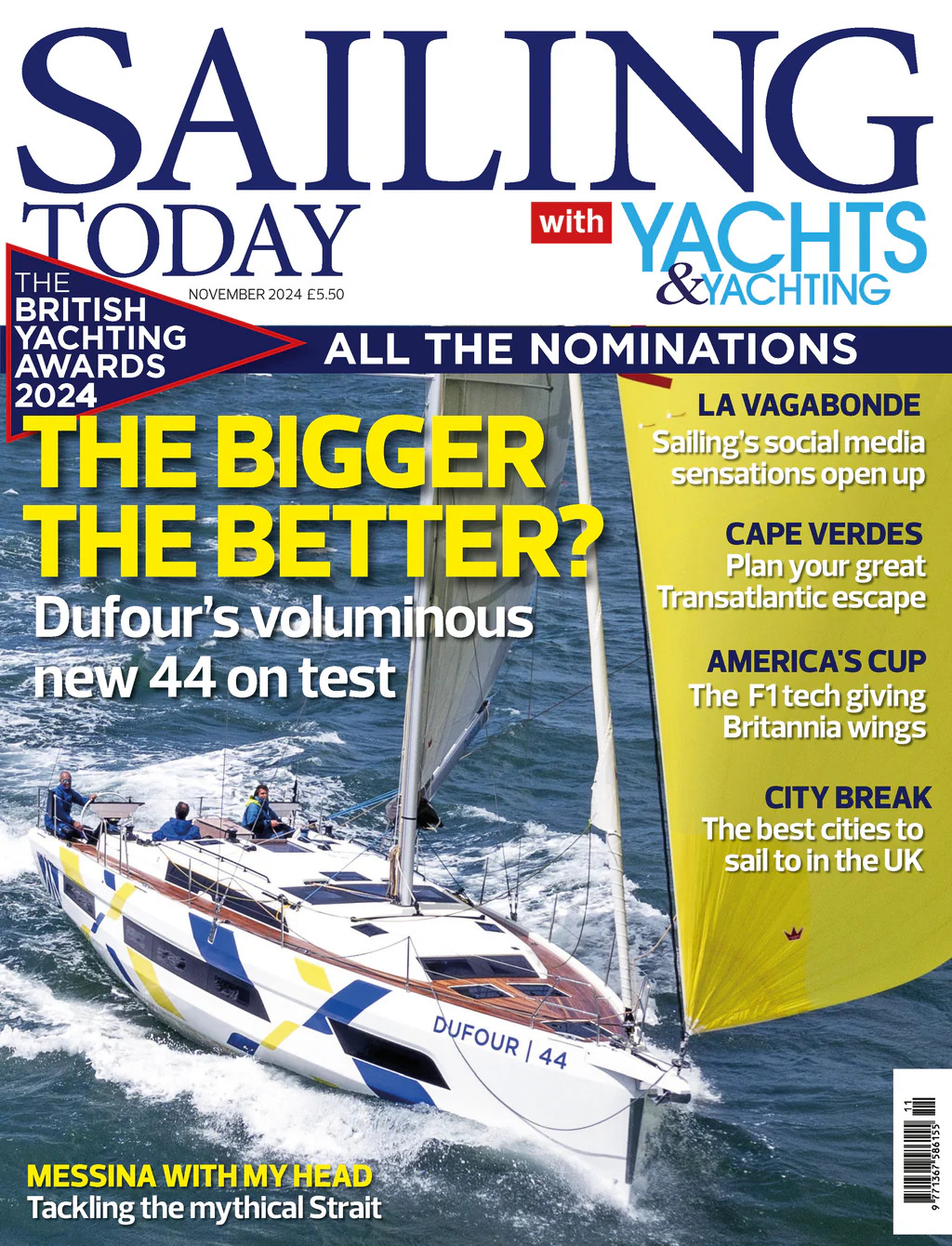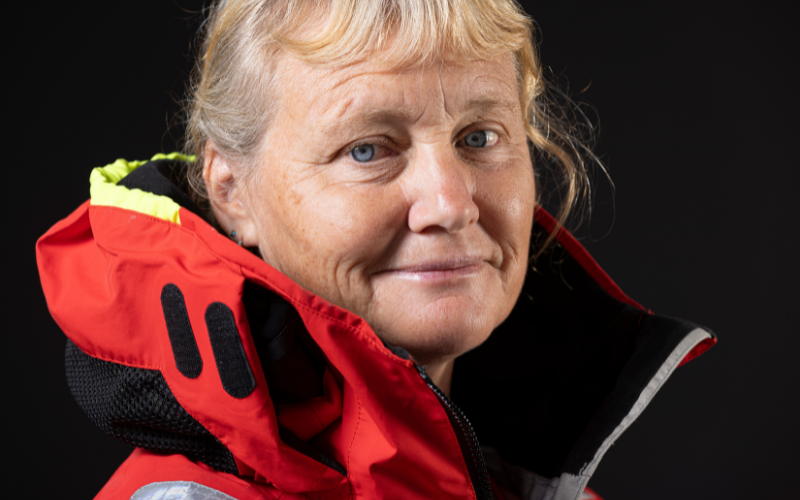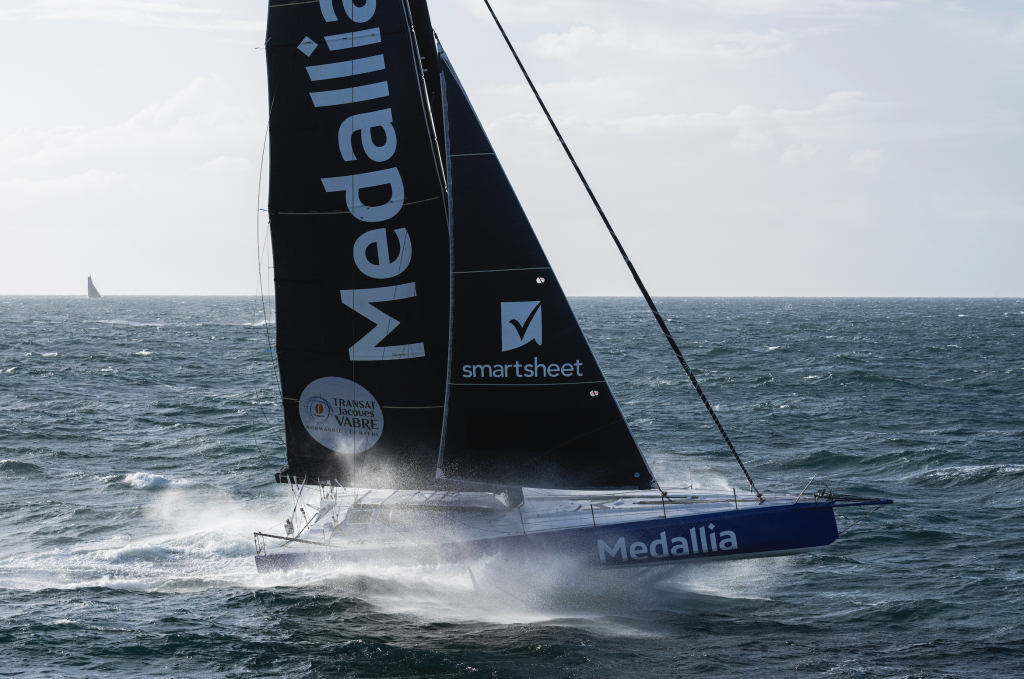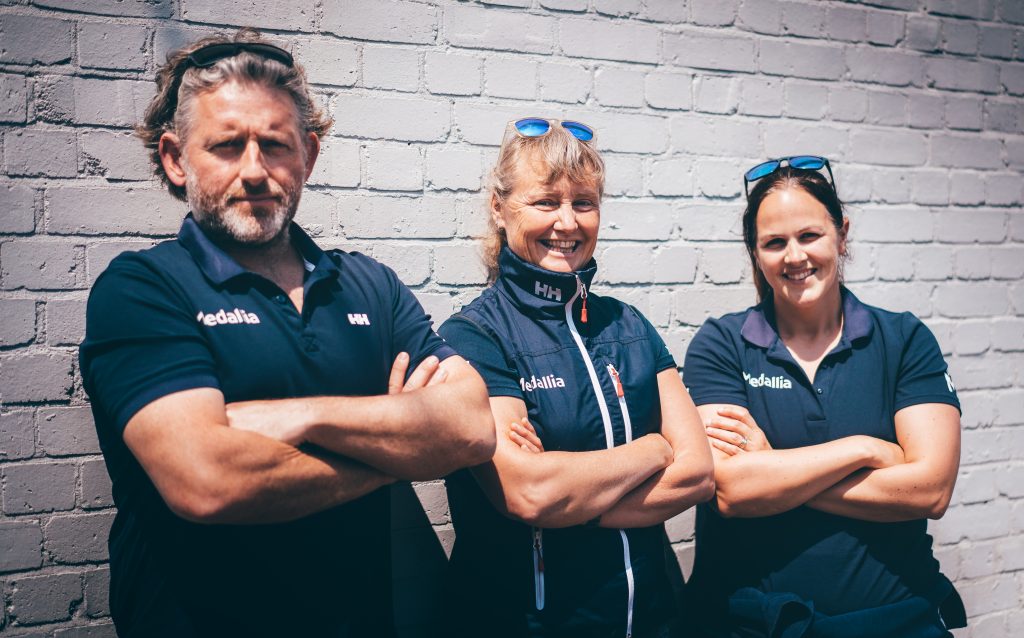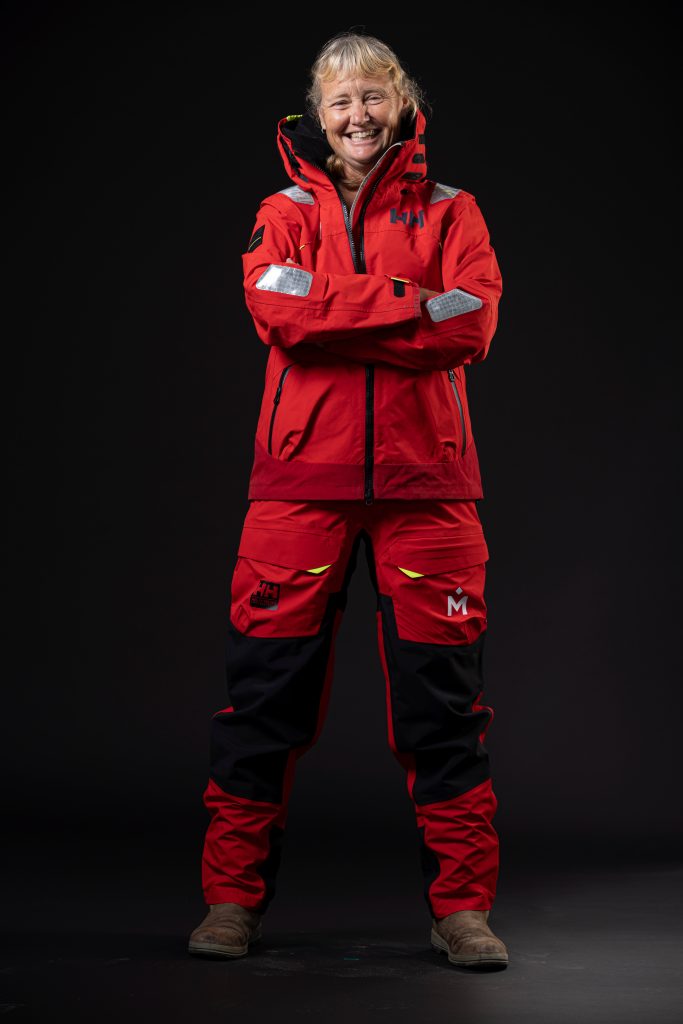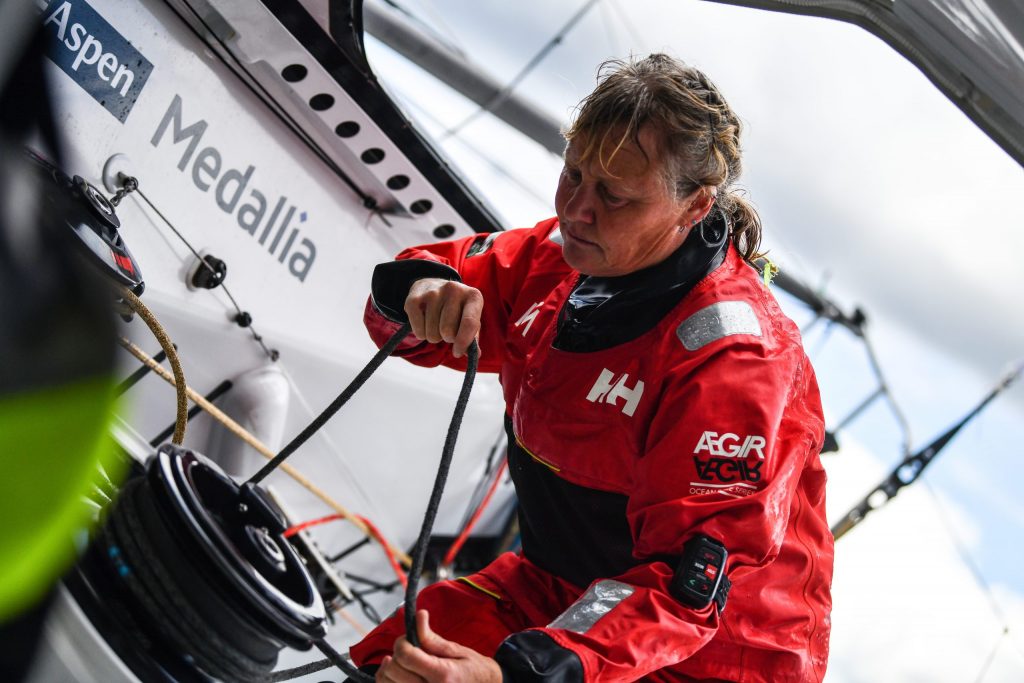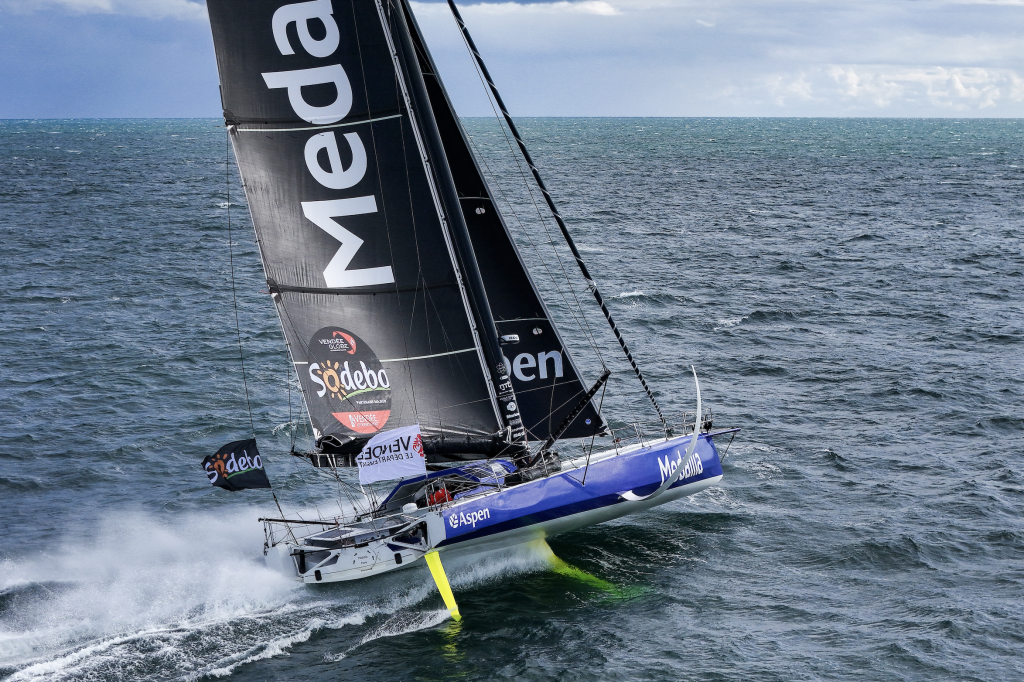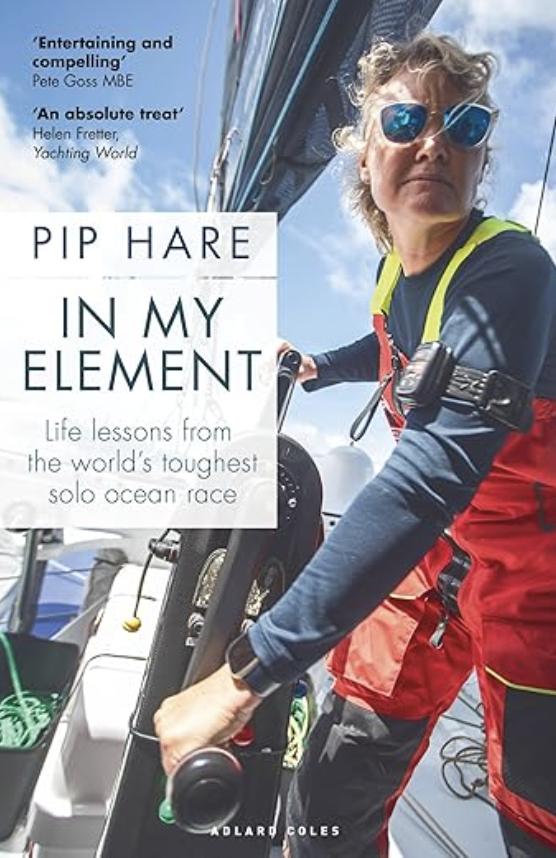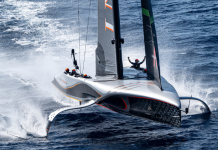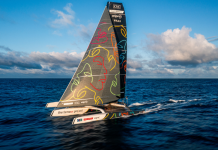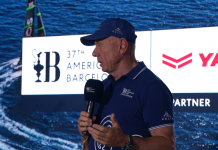Pip Hare, the 8th woman in the world to complete the Vendée Globe, is all set for this year’s elite race, and she’s excited to show us what she can do. Milly Karsten catches up with Pip for a chat…
Out of the 40 skippers in this year’s Vendée Globe race, only 6 women are taking part, and we’re delighted to say, on the back of her sponsorship difficulties, the British sailor Pip Hare is one of them. This single-handed, non-stop, elite sailing marathon, raced in IMOCAs, sets off in November 2024, and Pip’s excited to show us what she can do…
Pip Hare’s Vendée Globe…
Tell me about your team and it’s development
So the big change really between 2020 and 2024 is the team. I very much went into 2020 as a one woman band supported by friends and volunteers, and then you know we got Medallia as the title sponsor in June 2020, and then I was able to kind of bring a team onboard. But it was less my team and more kind of, you know, a load of experienced people who could do the work that we needed. And so this cycle, part of what I wanted to do was build a team, so there’s been three areas of development. One is me as a sailor, the other one is the boat, and the third one is the team, and we are a core team of 7 full time, but we can expand up to kind of 10-12. In IMOCA terms that’s a small team still, but we’re really kind of punching above our weight I think, and we’ve kind of established ourselves now as one of the IMOCA teams…
In truth we absolutely are stretched to the limit and it’s hard, everyone works very hard, but we’ve also been really super critical about what we do and how we do it. We’ve had to make compromises and decisions, and streamline things, but you know one of the things that we do do, is if we do need a particular expertise, then we bring in a subcontractor… we do all the legwork… but it does mean we know our boat inside out, we know our campaign inside out, we know our business inside out, and I think there’s a massive strength in that.
How were the sponsorship issues? How did it affect preparations?
Yeah, it was a pretty low period at the beginning of this year, I think it was probably our lowest period as a team in the whole race, because you know we had planned and set out what we were going to do, we had made these big investments and changes in the boat, and to have the financial rug pulled out from underneath you is really difficult. There is a path where you just say, “oh well it’s happened we just have to stop moving forwards”… but that’s just such a disappointment, not just for us as a team – not being able to use our potential – but also for everybody else who was invested… not being able to finish that off. So, you know, we struggled, it was a lot of pressure on a lot of people, and it’s hard to stay positive when it’s like that, but ultimately I’ve always believed in what we have to offer, I’ve always believed in our potential on many levels, not just from a sporting perspective, but also in terms of what we can deliver to sponsors… We just kept trying, and kept trying, and kept trying, and that’s where this is this genuine synergy between how you run the business and sailing in itself, because if in the middle of the southern ocean you get knocked over, you must get up and you must carry on, and actually from a business perspective that’s what we had to do. We’re still not quite there, we’ve still got a tiny bit more funding to pull in, but we have turned it around so radically in the last 6 months, it’s pretty cool.
Compared to your first race, is this a very different feeling? Is it different worries, or the same excitement?
On the one hand I think I know what to expect, on the other hand I don’t know what to expect, because it’s never going to be the same. It’s totally different, there’s 40 boats in it, I’m in a high performance boat, the competition now is at the highest level it’s ever been, and I think there is more pressure on me. You know, in the last race I was a complete unknown, I had nothing to prove to anyone other than myself. In this race the expectations are higher and I’m super worried about encountering a problem I can’t fix, and not being able to finish the race. The odds are against me from that perspective. We’ve done as much as we possibly can, the boat is strong, you know, we’ve built resilience in, we’ve really worked hard, but I don’t know if I’m going to dis-mast or hit something, or… I know my tack line will chafe, and I have three new tacklines and a spare tack position (…) but the really big things, you just have to accept that, and know that it’s part of the race. If it happens I’ll have to deal with it at the time, so there is still that nervousness about it, and the feeling that I could have or should have done more… I don’t feel like I know what I’m doing and that this is going to be fine. I know what I don’t know.
Women in Sailing: Pip Hare
How does it feel being a female hero?
I guess the first thing is, I don’t think I am… you know I am so normal. I started off as a sailing instructor, for years as a sailing instructor, I have done all of the jobs that all of the regular sailors do… I wasn’t on some performance pathway from the beginning, I wasn’t scouted. I had to make all of this happen for myself, and if I hadn’t made it happen for myself, I never, ever, ever would have been here. So in that respect I am normal, I am really normal. Nobody spotted me and went, “you’re amazing”.
I guess from my point of view I want everyone, not just women – everyone, to understand that it’s only a tiny amount of people who get given opportunities, the rest of us, we know what we’ve got inside, we know how we can and can’t perform, we know how we want to do and sometimes we have to back ourselves. Something like the Vendée – there are 6 women in the Vendée this time – there are three women capable of top 10 finishes in this Vendée and I just think… I don’t feel like I need to be out there saying “I’m a woman, I’m a woman”, I just need to be out there sailing and show you what I can do.
There’s 3 of us who are competing on equal terms, and we are absolutely willing to be judged on our merits, I think that kind of says it all. That is the subliminal message – give enough people a chance and they will show you what they can do, but also if i’m not good enough then fine I’m not good enough, but give me the chance to show you.
Do you feel like it’s been difficult in this male-dominated sport?
Yeah, it has been hard and it was harder… you know I started my career in 1992, you know it was a lot hard then, and I feel like now I’ve got my team… that’s why I am where I am now, because I’ve got my team, but let’s not be under any illusion, I wouldn’t be skippering anyone else’s IMOCA team right now.
Now I am here I have the wonderful privilege of being judged on my merit, and I know that the other sailors that I race against just look at me and see a sailor, and that’s all I ever wanted. You know things are getting better now, but one thing we do need to remember is when you get up to these kinds of levels, experience matters… experience still matters, and there is a pathway that needs to be followed to gain that experience.
The Challenges Ahead…
What are you most looking forward to… aside from finishing, what is the moment you are dreaming of, where you can take a breath?
Well it’s always after the start, and I probably don’t settle in until 24 hours or 48 hours after the start. For me, the further I go the longer my stride effectively. I love the length of the race, I love the endless opportunities to come back, to push hard, to put another target on somebody’s back. I love the problem solving. In the moment it is just like “ah, will this ever stop”, or “how am I going to get out of this”, or “this is utterly terrifying”… but i love the problem solving and the fact that I have to be the one to do it. I got off the boat saying that was the best experience of my life. Do I want to do it again? Hell yes.
It’s dangerous though, because there is a tiny tiny part of me that says, what if I don’t enjoy it as much? And that’s why I’m super aware that this is going to be a totally different race, I cannot have any expectations of how this is going to feel, I just need to go into it with, almost like, the same willingness to learn from the experience as I did last time I think.
Obviously it’s a hugely physical race, and difficult in lots of different ways, but mentally, is that another barrier you feel like you have to face?
Yeah, I think probably the mental side of things is ultimately somewhere I have been really comfortable, and that’s because of my route through the sport, because I had to make my own way, from my first race which was the OSTAR in 2009, I’ve always been low budget, I’ve always been struggling, and so I’ve never had the luxury of SATCOMS. The first solo transatlantic I did I didn’t even have an EPIRB on board… let alone a SAT phone. I never had the opportunity to speak to anyone, and so, over the years I have learnt to manage myself, and manage my emotional and mental welfare, and resilience. And so, when shit does hit the fan, the first thing I want to do is not to ring someone, just get straight on and do it. Actually I’m super happy… I love not talking to people!
What is your snack of choice to take? In a low moment… What do you need to take with you?
So, I really have to be careful about how I use these, they turbo me because I don’t drink caffeine (coffee) while I’m sailing… chocolate coated coffee beans…. The problem is I have eaten 6 in one go and then I couldn’t sleep for 24 hours!
The Boat: Medallia
- Boat: IMOCA 60
- Foiling : Yes
- Length: 18.28m (60ft)
- Draught: 4.50m (15ft)
- Mast height: 29m (nearly 100ft)
- Sail area: 600m2 (6,500 ft2)
- Design: Verdier/VPLP
- Launch Date: 2015
Pip Hare’s New Book
Alongside following Pip’s progress in the race I’ll be reading her new book – In My Element: Life lessons from the world’s toughest solo ocean race – which she tells me is, “It’s all about the mental tools and techniques that I used during the last Vendée, so it’s kind of as a companion to this one. It’s for anyone who’s watching this one and wondering how the hell she does it… “
